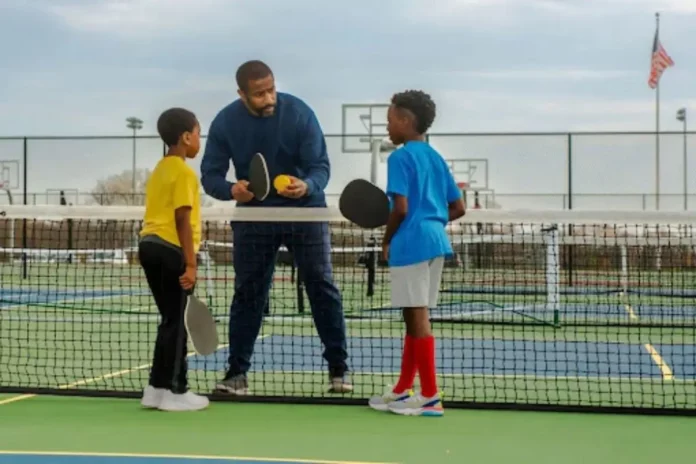Mastering Pickleball Coaching: For those passionate about pickleball and eager to share that enthusiasm with others, becoming a certified pickleball coach offers an excellent opportunity. The journey to certification involves gaining a deep understanding of the game, accumulating practical experience, and obtaining credentials from respected organizations. Here’s a comprehensive guide for anyone looking to become a certified pickleball coach and start a coaching career.

Immerse Yourself in the Game
Before teaching others, aspiring coaches must have a thorough understanding of pickleball. This involves mastering the rules, strategies, and techniques that are fundamental to the game. It’s not enough to just play; aspiring coaches need to practice regularly and build a strong grasp of the game’s mechanics. Watching professional pickleball matches can also help by allowing them to analyze the techniques of top players and learn advanced strategies.
Joining a pickleball club or community can provide consistent play opportunities and feedback from fellow players. Aspiring coaches can also enhance their knowledge by exploring online resources, tutorials, and forums. Reading books and articles about pickleball will further help coaches gain a well-rounded understanding of the sport, which is essential for effective teaching.

Gain Experience and Participate in Training
Gaining experience is a vital part of becoming a certified pickleball coach. Aspiring coaches should consider enrolling in certification workshops offered by reputable organizations like the Professional Pickleball Registry (PPR), Pickleball Coaching International (PCI), or the International Pickleball Teaching Professional Association (IPTPA). These workshops provide comprehensive training, which is available in person and virtually.
In addition to workshops, participating in local leagues and tournaments offers practical experience. Observing how players interact and understanding the dynamics of games can offer valuable insights. Aspiring coaches can also volunteer or assist established instructors to gain teaching experience, and offering free lessons to the community can help showcase their teaching abilities and build confidence.

Choose a Certification Program
Once aspiring coaches have acquired sufficient knowledge and experience, they need to pursue a certification program. Several organizations offer coaching certifications, each with its own curriculum and requirements. For example, PCI offers an online certification program that lets participants work at their own pace. The program includes eight hours of training and three on-court evaluations where candidates demonstrate their coaching skills with real players.
PPR’s certification process typically includes attending a workshop, completing a written exam, and undergoing practical assessments. To become certified, candidates need to demonstrate a certain skill level in pickleball. For instance, PCI’s Level 1 certification requires a 3.5 skill level, which includes proficiency in serving, dinking, volleying, placing shots, and a solid understanding of the rules.
Develop Coaching Skills
In addition to technical expertise, effective coaching requires strong communication and interpersonal skills. Aspiring coaches must be able to explain techniques clearly and provide constructive feedback. Patience and adaptability are key to helping players of various skill levels. Coaches must tailor their teaching approach to suit different learning styles, which will enhance their effectiveness.
Passion for the sport will inspire students, and good organizational skills will allow coaches to plan and execute well-structured lessons. Creating a positive, supportive learning environment is essential for ensuring that students enjoy their experience and improve their skills.
Market Yourself and Build Your Coaching Career
Once certified, the next step is to market coaching services and build a coaching career. Creating a professional website and social media presence can help showcase qualifications and attract potential clients. Networking with other coaches, facility managers, and pickleball organizations is important for staying updated on trends in the sport and expanding one’s reach.
Coaches should also keep their skills up to date by learning about new teaching techniques, equipment, and developments in pickleball. Investing in quality gear demonstrates professionalism and commitment to the coaching career. Ensuring that every lesson is safe, productive, and enjoyable for students will help build a strong reputation and client base.
News Summary: Mastering Pickleball Coaching
Aspiring pickleball coaches can transform their passion into a career by gaining in-depth knowledge of the game and acquiring certification. Certification programs from organizations like PPR, PCI, and IPTPA offer workshops and evaluations to ensure coaches are well-prepared. Practical experience and training in coaching skills are essential, as is the ability to market services and build a successful coaching career. With dedication, coaches can create a positive impact and grow their businesses.
ALSO READ: Pickleball Clinics in Downers Grove: Learn and Improve with Expert Coaching

